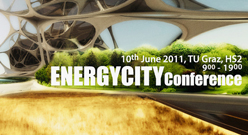-
- 28 JanFinal presentation: Msc1 InfoMatters Design studio
- 21 JanPresentation and exhibition of the Minor 'Interactive Environments' at Science Centre Delft
- 12 JanHyperbody afternoon lecture series: Dr. Bert Bongers from the Faculty of Design, Architecture and Builiding at UTS
- 16 DecLecture Chris Kievid at Reality, Check!, the third event in the V2_AR Ecosystem series
- 29 NovExhibition of the Msc1 Nanjing Workshop (June 2010) at OostSerre at the faculty of Architecture of TU Delft
- 22 NovHyperbody invites you to enroll in the new MSc Program: Non-standard and Interactive Architecture
- 21 NovAccepted paper for FABRICATE Conference 2011 'Investigations in design and fabrication at Hyperbody'
- 12 NovLecture by Kas Oosterhuis at the Institute for Advanced Architecture in Catalonia
- 08 NovLecture Jelle Feringa at Colloquium # 18 Artificial Evolution at the Royal Academy of Art
- 05 NovDr. MarkDavid Hosale presents paper at the iDMAa Conference 2010 at Emily Carr University of Art and Design
-
-

The conference will be addressing the issue of providing solutions for the impending energy problems facing us and at the same time improving the quality of life in our cities by radically rethinking the way we configure the physical and virtual infrastructure of society.
The lecture of Kas Oosterhuis will be held at the TU Graz at the 10th of June and will commence at 09.15 hr
ENERGYCITY CONFERENCE
Presentation of the results of an interdisciplinary research project led by the institute for buildings and energy at Graz University of Technology, which examines ways of restructuring and reconfiguring the physical infrastructure of cities to radically increase their energy performance, with particular emphasis on more effective use of building space and the use of synergies between physical and virtual infrastructure, living and working space, teleworking ect.; in short, startegies for spatial, temporal and digital densification. In the course of the project, new typologies for vertical structures incorporating all the necessary infrastructural and agricultural usages, food production, ect., were developed. Building integrated energy production is one of the focal points thereby. The aim is to provide solutions for the impending energy issues AND at the same time radically improve the quality of life in our cities.
Programme
Programmable Sustainable Architecture | KAS OOSTERHUIS
Professor at the architectural faculty at Delft University of Technology and director of Hyperbody and the protoSPACE laboratory for collaborative design and engineering. Research in the areas of interactive architecture, real time behaviour of buildings and environments, living building concepts, collaborative design, file to factory production and parametric design.Sustainable Urban Design | ALEJANDRO GUTIERREZ
Associate director at Arup urban design. He led the design on the Dongtan Eco City project for Shanghai and is currently leading several innovative projects that include the Low2no project in Helsinki, a sustainable master plan for Manifattura Domani and an ecological master plan for 40,000 inhabitants in Santiago, Chile.Research at the Institute for Buildings and Energy | BRIAN CODY
Institute for Buildings and Energy, Graz University of TechnologyBERNHARD SOMMER
Angewandte, University for Applied Arts in ViennaIT, Energy and Teleworking | VOLKER BUSCHER
Director of Arup IT, leading the firms work in the use of information technology in resource efficiency which includes the development of an approach for cities and utilities, urban information architecture and sustainable information technology for enterprise and government organization. Currently working on projects in Europe, the Middle East, USA and Asia.Transport, Energy and Teleworking | MARTIN FELLENDORF
Dean of the faculty of construction engineering and director of the institute for highway engineering and transport planning at Graz University of Technology. Research interests in the areas of transportation, traffic and infrastructure.Flexible Adaptable Space | ROGER RIEWE
Director of the institute for architectural technology at Graz University of Technology and co-founder and managing director of Riegler Riewe Architects, currently responsible for the design of projects in Austria, Germany and Poland. Research interests in the areas of structure, space and technology.Structure and Adaptability | KLAUS BOLLINGER
Graz University of Technology
Angewandte, University for Applied Arts in ViennaPanel Discussion
KLAUS BOLLINGER, VOLKER BUSCHER, BRIAN CODY, ALEJANDRO GUTIERREZ, KAS OOSTERHUIS, ROGER RIEWEmore information at: http://www.ige.tugraz.at/
 Facebook/
Facebook/
 Twitter/
Twitter/
 RSS
RSS

